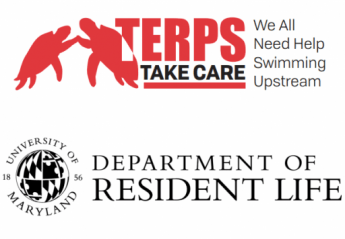For our first 2021-2022 interview, we connected with Jamila Aswad from Fostering Terp Success to talk a little bit about basic needs, homelessness, foster care, and complicated family systems. Fostering Terp Success is tackling the hard work of providing much-needed support for students who surviving (and thriving) in the face of these challenges.
TTC: Jamila, welcome back to UMD as the brand-new case manager for Fostering Terp Success. We’re so excited that you agreed to share some information with us! Fostering Terp Success is a relatively-young program that continues to expand each year, as far as I’m aware. Can you walk our Terps through a little info about what Fostering Terp Success actually is?
- JA: Fostering Terp Success (FTS) provides holistic strength-based, trauma-informed support to UMD students, under the age of 25, who were or are in foster care, who are homeless or at risk of being homeless, and who are without a supportive family system. Our comprehensive team of staff, faculty, alumni, and community partners are committed to assisting students in achieving personal and academic success by helping them access essential social services, navigate challenges, and develop self-advocacy and life skills.
TTC: It’s really an incredible program – one that I know a lot of students have found supportive in a variety of ways. Wit that in mind, can you share a little more about some of the specific services and programs FTS offers?
- JA: We provide students with stable on-campus housing during winter and summer break, monthly life skills workshops that support intellectual growth, and social connections through our monthly case manager meetings, peer-group activities, and monthly Campus Coach mentor-mentee program. Our Campus Coach program is a volunteer opportunity for UMD faculty and staff to provide monthly, one-on-one wellness support to an FTS student.
TTC: It seems like the program truly does provide comprehensive, holistic support. Give us a little background into how FTS came to be?
- JA: Students who experience foster care and/or homelessness are navigating multiple complex systems to access and achieve success in higher education. We recognize these challenges and, under the leadership of Brian Watkins, we brought together key staff from across the university to form the Fostering Terp Success Working Group. Together, they identified ways the university could work to remove barriers and provide support by utilizing campus services and resources and connecting students to important external resources. This has led to tremendous partnerships with the Fostering Change Network (founded by Terp alumna, Shalita O’Neale), Prince George’s County Department of Social Services, and the Latin American Youth Center – Maryland Multicultural Youth Center.
TTC: That’s an impressive network of support, Jamila – you’re really covering all the bases and making all the connections. On a more personal note: what it one thing you’d like Terps to know about FTS?
- JA: We are here for YOU! We value your presence and experiences and will do all that we can to help you have a safe, lively, and successful UMD experience!
TTC: I love it! Would you also be willing to share a little bit about your self-care routine, and how you maintain your wellness when – like our students – you find yourself overwhelmed, stressed, or just dealing with a lot?
- JA: I have a weekday morning self-care routine that consists of one more of these activities: a short read from one of my affirmation books, some journaling, a 10-15 min meditation, and/or a 45-60 min walk around my neighborhood park. And if I don’t get to these activities in the morning I give myself grace to complete at least one throughout the day 🙂
TTC: I adore the focus on giving yourself grace as needed, while also holding yourself accountable throughout the day. It’s a much-needed balance! Now, just a couple more questions. First of all, how can students access FTS, even just to find out more?
- JA: We provide students with year-around support. Students can access our resources by completing our interest form available on our website – https://umd.edu/fostering-terp-success.
TTC: Thank you so much, Jamila – this conversation has been so helpful in shedding light on FTS, and hopefully our students will also find the information useful. For our final question today – is there anything else that you want students to know by the end of this interview?
- JA: Regardless of service eligibility requirements, we are happy to connect with all Terps in need to assist folx in securing safe shelter, food, social support, or simply a listening ear.
